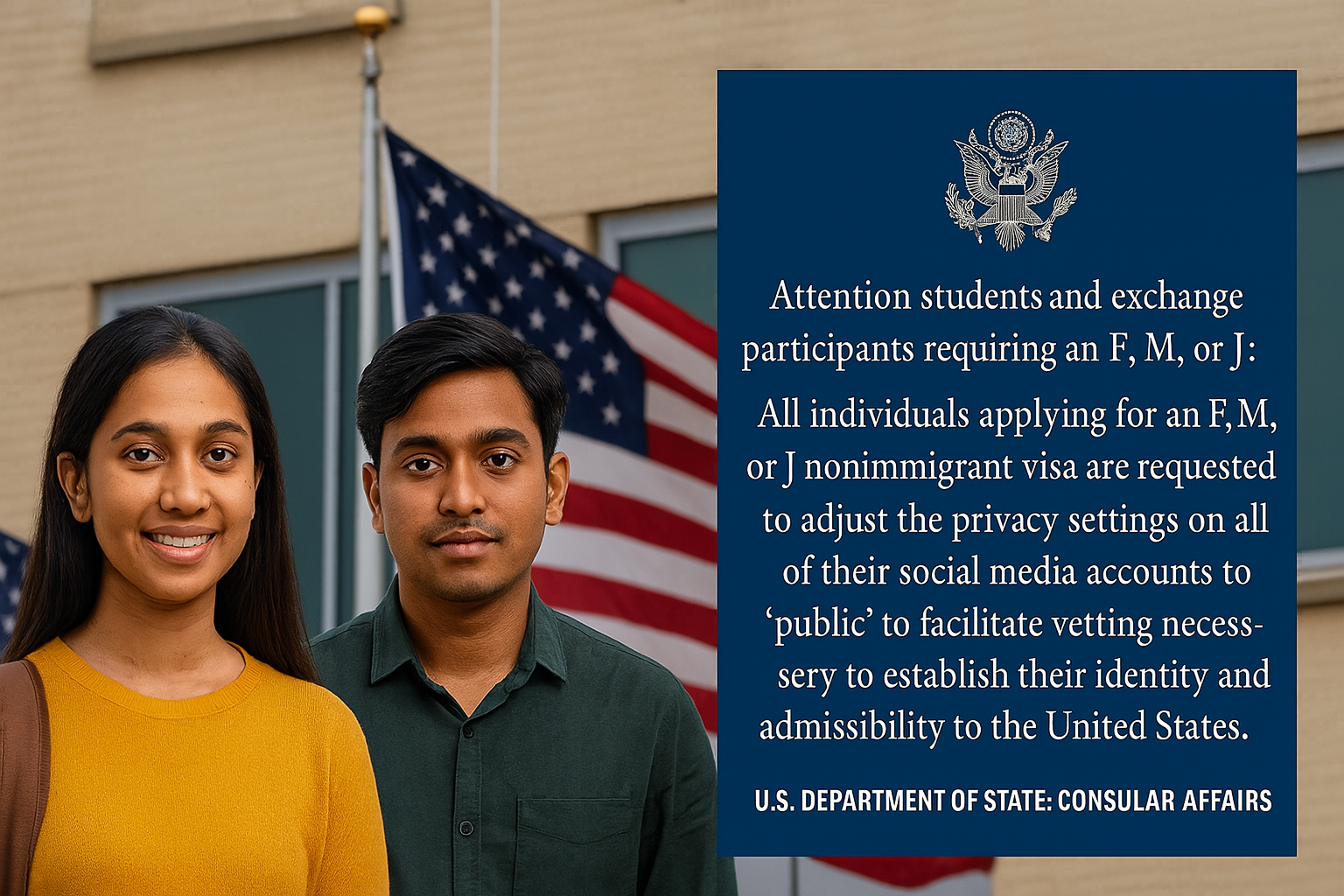In a move likely to affect thousands of prospective international students and exchange visitors, the United States has requested all applicants for F, M, or J category nonimmigrant visas to set their social media accounts to ‘public’.
The directive, shared via the US Embassy Dhaka’s official Facebook page, is said to help facilitate the vetting process required to determine an applicant’s identity and admissibility.
“Effective immediately, all individuals applying for an F, M, or J nonimmigrant visa are requested to adjust the privacy settings on all of their social media accounts to ‘public’ to facilitate vetting necessary to establish their identity and admissibility to the United States,” said the notice of the US Department of State, Consular Affairs.
While the requirement is framed as a “request,” US consular officers could potentially use the visibility of social media profiles as part of background checks and credibility assessment.
This reflects broader security measures that increasingly incorporate online behaviour into immigration scrutiny, analysts said.
The F, M, and J visa categories relate specifically to individuals entering the US for academic or cultural purposes: F visas are issued to international students enrolled in academic programmes or English language institutions, M visas apply to students pursuing non-academic or vocational studies, and J visas are for individuals participating in exchange programmes, such as scholars, interns, or researchers.
Analysts said that the move underscores growing global trends where social media footprints are being increasingly monitored for immigration and security screening.
Embassy officials have not confirmed whether failure to comply would lead to outright denial, but analysts say non-cooperation could trigger delays or additional scrutiny.
This requirement, while not unprecedented, signals renewed attention to online identity verification as part of the United States’ evolving visa and border security protocols, they said.


